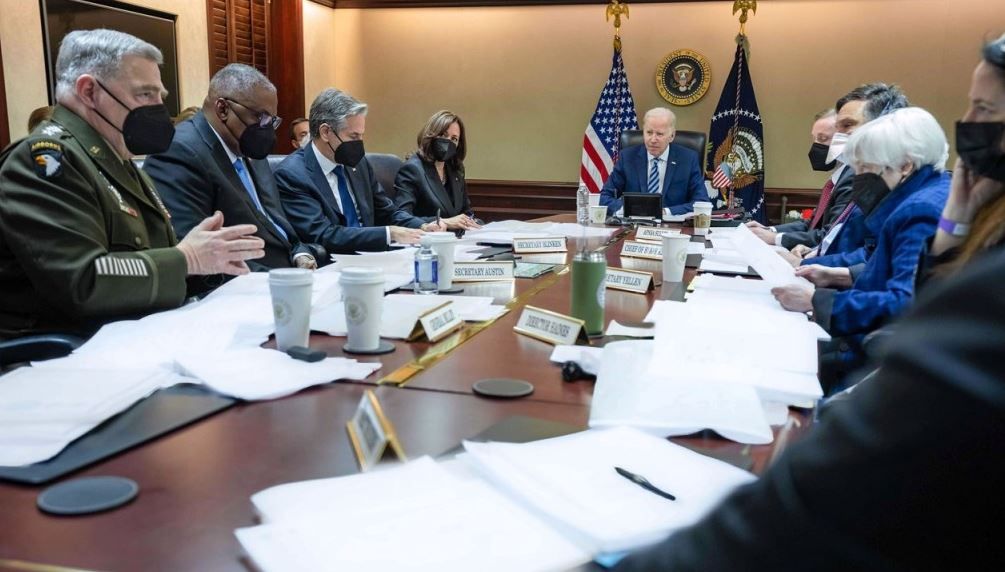Joe Biden, the president of the United States, threatened Russia on Thursday with some of the widest and hardest financial consequences that the world’s largest economy could summon, hours after President Vladimir Putin started his military’s invasion of Ukraine.
So far, the restrictions and penalties outlined by the United States seem to exclude Putin personally from punishment. They also forego one option that has long been touted as one of the most difficult to implement: barring Russia from the SWIFT banking system, which facilitates the transfer of money across the globe. Concerns from European allies were raised by Biden.
However, the moves taken by the United States on Thursday are significant in that they are intended at destroying Russia’s financial system, its elites, and whatever expectations the country may have for economic progress. Listed below are the retaliatory financial measures the United States has announced against Russia’s largest state-owned banks and businesses, as well as against the country’s industrial sector, economy, and some of its most powerful individuals, as well as key measures that the United States has delayed implementing.
According to the Treasury Department, the sanctions imposed on Thursday are aimed at large Russian banks, which now control more than 80 percent of all the country’s financial assets.
The targeted institutions often do tens of billions of dollars’ worth of transactions in dollars every day on average. The United States is now cutting them off from the United States banking system and the United States currency. The goal is to make even the most routine commercial transactions, as well as foreign commerce, much more difficult for banks and Russian businesses.
Other U.S. actions are aimed at significant state-owned and private firms in Russia, with the goal of making it more difficult for them to get funds to invest and operate in the country.
The export limitations imposed by the Biden administration include another very powerful piece of leverage that the United States has – semiconductors and other sophisticated high-tech equipment manufactured in the United States.
Biden said that new U.S. export restrictions would deprive Russia of more than half of its present high-tech supplies as a result of the restrictions. It would “deal a severe damage” to Russia’s efforts to modernise its military, as well as its renowned aerospace sector, space programme, shipping, and other industries, he said on Friday.
Export controls imposed by the United States are expected to deprive Russian industries and the military of high-tech U.S. components that enable warplanes and passenger jets to fly and smartphones to be smart, as well as other software and advanced electronic gear that is essential to the operation of the modern world.
Because of the worldwide dominance of U.S. software, technology, and equipment, they make it difficult for Russia to get integrated circuits and goods including integrated circuits, among other things. The influence might be felt in aeroplane avionics, machine tools, cellphones, gaming consoles, tablets, and TVs, among other places.
Biden claims that the sanctions on Russia were designed so that they would not cause a disruption in the global oil and natural gas markets. In a time when limited petroleum supplies and rising oil prices are making life difficult for governments and people throughout the globe, this is especially significant. The Biden administration is also under political pressure as a result of the increased price of oil and natural gas.
Germany and other allies remain significantly reliant on its exports, despite the significant progress being made by certain countries in their efforts to transition away from fossil fuels. The Biden administration has emphasised the caution it is taking to ensure that sanctions have the least possible effect on such allies.
Biden told reporters on Thursday that his financial penalties would have an even greater impact on Russia than a SWIFT block would have had. A number of financial professionals agree, and they assert that imposing banking penalties on Russia might be less disruptive to global financial networks than removing Russia from the SWIFT system would be.

